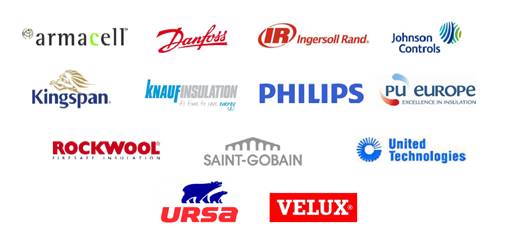
Commission’s Heating & Cooling Strategy needs to do more on buildings
Date
Sections
Today, the European Commission unveiled the much-awaited Heating & Cooling Strategy in the framework of the Sustainable Energy Security Package. EuroACE welcomes DG ENER’s efforts to gather more data in order to give a comprehensive picture of heating and cooling in the EU, as it represents around 70% of energy consumption in buildings. But EuroACE calls for more concrete action in the buildings sector.
By gathering data and figures on heating and cooling consumption throughout the sectors and the Member States, the Strategy is an interesting document, which gives a more comprehensive picture of the energy system. The effort which was made by the Commission services is valuable. But EuroACE would have expected to see the role of buildings within the Energy Union to be better recognised, as they represent 40% of the total EU energy consumption. Although the building sector is a key focus, the European Commission has not proposed measures which would fully tap the cost-effective potential that this sector represents.
“We are glad that the Heating & Cooling Strategy includes energy efficiency measures in buildings and building renovation as key points to be followed-up, but the document fails to fully put the Energy Efficiency First principle into action with concrete policy measures”, explained Adrian Joyce, Secretary General of EuroACE. The Strategy, recognising the need to make heating & cooling more efficient, should put the reduction of energy demand from buildings as the priority measure to be implemented, as this is technologically feasible, economically affordable, and brings multiple benefits.
The rate and depth of building renovation should be improved, notably through a revised and improved Energy Performance of Buildings Directive (EPBD). EuroACE welcomes the fact that the Heating & Cooling Strategy includes specific measures on the EPBD revision process and the Smart Finance for Smart Buildings initiative. For example, it calls on the Commission to tackle the issue of split incentives, to ensure access to finance for energy renovation projects, to improve skills and the reliability of Energy Performance Certificates, and to look into the opportunities offered by Smart Buildings. In this regard, EuroACE has developed a definition of a Smart Building in its Position Paper (available here).
“The Strategy gives a first sketch, but more needs to be done as the aim should be to reach an nZEB-level building stock in the EU by 2050”, recalled Susanne Dyrboel, President of EuroACE. She also added that “a more strategic approach needs to be adopted for the building sector, for example by fostering staged-deep renovations and strengthening the ambition and implementation of the national renovation roadmaps included in the Energy Efficiency Directive (EED)”. Additionally, Adrian Joyce stated that “only a highly energy efficient building stock, where energy demand has been reduced first, is the starting point for an efficient transition towards a decarbonised, sustainable and secure energy system, based on the cost-effective use of renewable energy sources.” This approach of putting energy efficiency first, especially in the building sector, would also strengthen consumer empowerment, a topic which will be at the heart of the Energy Union in 2016.
The EuroACE Position Paper on the Heating & Cooling Strategy (September 2015) is available here.
END
For further information
Adrian JOYCE
EuroACE Secretary General
+32 (0) 2 639 10 10
About EuroACE
EuroACE represents Europe’s leading companies involved with the manufacture, distribution and installation of energy saving goods and services for buildings. EuroACE members employ over 330 000 people in these activities in Europe, and have around 765 production facilities and office locations. The mission of EuroACE is to work together with the EU institutions to help Europe move towards a more efficient use of energy in buildings, thereby contributing to Europe’s commitments on climate change, energy security and economic growth.
EuroACE Members (February 2016) are

